








| White Stork (Ciconia ciconia (Linnaeus, 1758)) |









|
|
Scientific name: Ciconia ciconia (Linnaeus, 1758) Common name: White Stork French name: Cigogne blanche Order: Ciconiiformes Family: Ciconiidae Size: Body size (from tip of the bill to tail): 90 to 110 cm; weight: 2.3 to 4.4 kg; wingspan: 155 to 215 cm. Habitat: Open and damp places but also in cultivated areas. Food: Frogs, earthworms, insects, reptiles and crustaceans, small mammals, small birds and eggs. White Storks pick their food on the ground and in shallow water. Nesting: The nest is a large platform made of branches. It is used and enlarged year after year. It is located on buildings, on trees or on dedicated support specially built by people for this. There is one brood per year with generally four eggs. Migration: In winter, White Storks move southwards in large flocks avoiding crossing seas. They overwinter in sub-Saharan Africa, East Africa, Southern Africa and India. Geographic area: Europe north to Finland, north-western Africa, south-western Asia. |
The White Stork has a completely white plumage except primary and secondary wing feathers which are black. The bill and the legs are red. In flight, the long neck is stretched forward and the legs protrude at the back of the tail. White Storks sometimes communicate by series of rapid and rhythmic bill-clattering. |
| [To know more about the White Stork] [Next picture] [Top] |
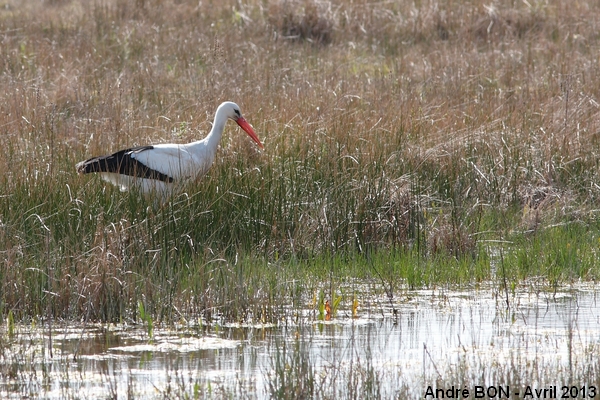
|
I have observed this White Stork at the park of Marquenterre in the Somme bay. It is here looking for food in a damp and grassy area. |
| [To know more about the White Stork] [Next picture] [Previous picture] [Top] |
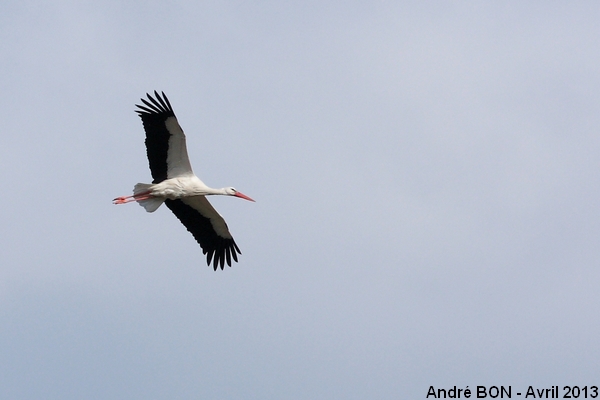
|
You have a nice view of the black primary and secondary wing feathers on this picture in flight. |
| [To know more about the White Stork] [Next picture] [Previous picture] [Top] |
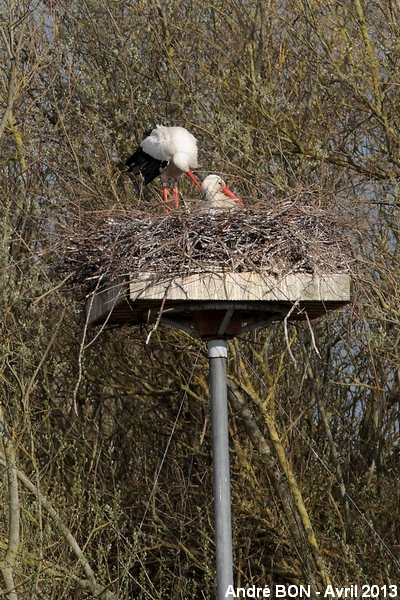
|
This nest is located on a dedicated support built to protect this species which was declining because of the lower number of favourable damp places. |
| [To know more about the White Stork] [Next picture] [Previous picture] [Top] |
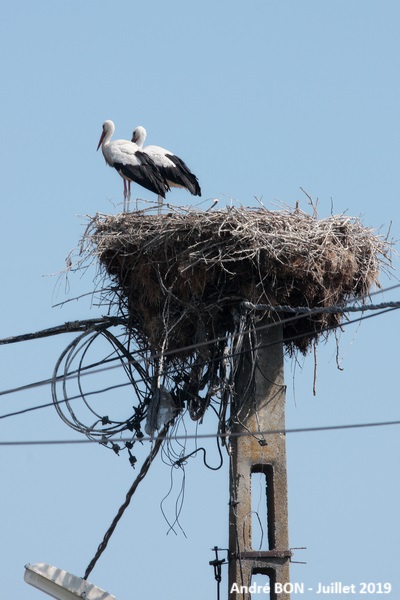
|
Short stop in the village of Corbu on the way to Tulcea to see the Danube Delta. |
| [To know more about the White Stork] [Next picture] [Previous picture] [Top] |
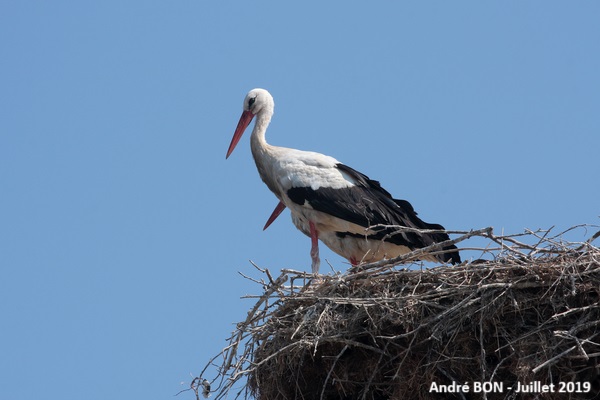
|
The number of White Storks observed will increase significantly as we approach the Danube Delta, certainly because of the ease of finding food there. |
| [To know more about the White Stork] [Next picture] [Previous picture] [Top] |
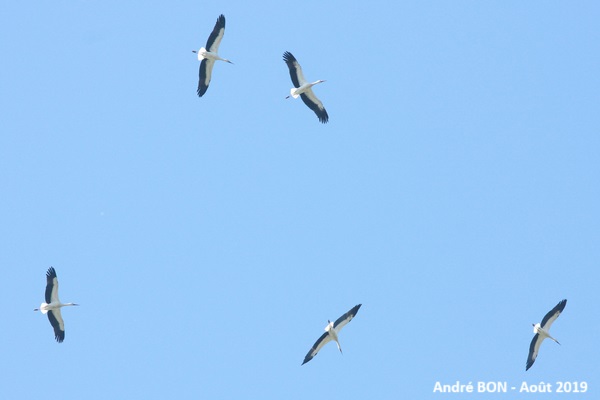
|
Here we are at the very beginning of a boat trip through the Danube Delta. Many White Storks are circling in the sky. I did not change the focal length and this view represents only a very small fraction of what we saw. |
| [To know more about the White Stork] [Next picture] [Previous picture] [Top] |
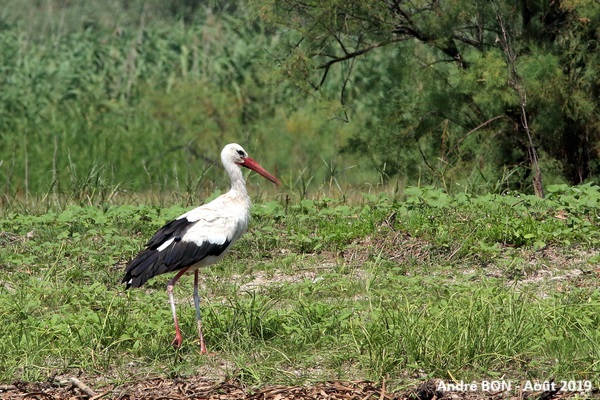
|
We also saw, here and there, a few White Storks on the banks. |
| [To know more about the White Stork] [Next picture] [Previous picture] [Top] |
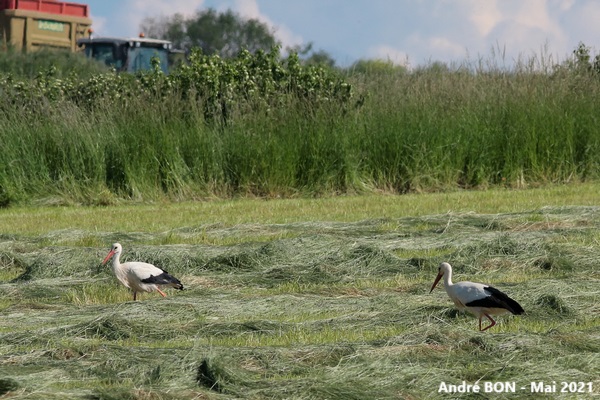
|
White Storks, which were quite rare sightings during my childhood in Saône-et-Loire, are now more and more numerous from year to year. As soon as a field is mowed for ensiling they arrive to look for food. I am now waiting to see a nest in the area. |
| [To know more about the White Stork] [Previous picture] [Top] |
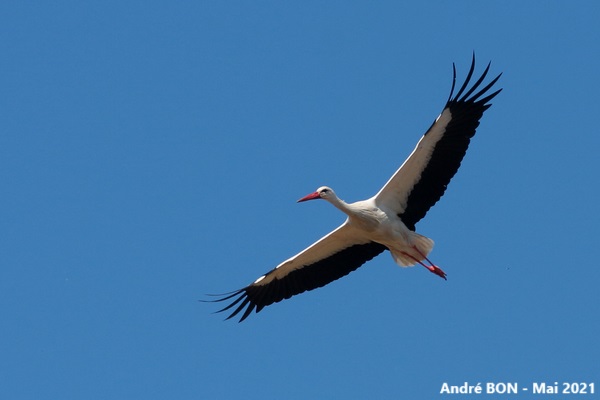
|
Here is a photo shot in my garden with a White Stork in flight :-) |